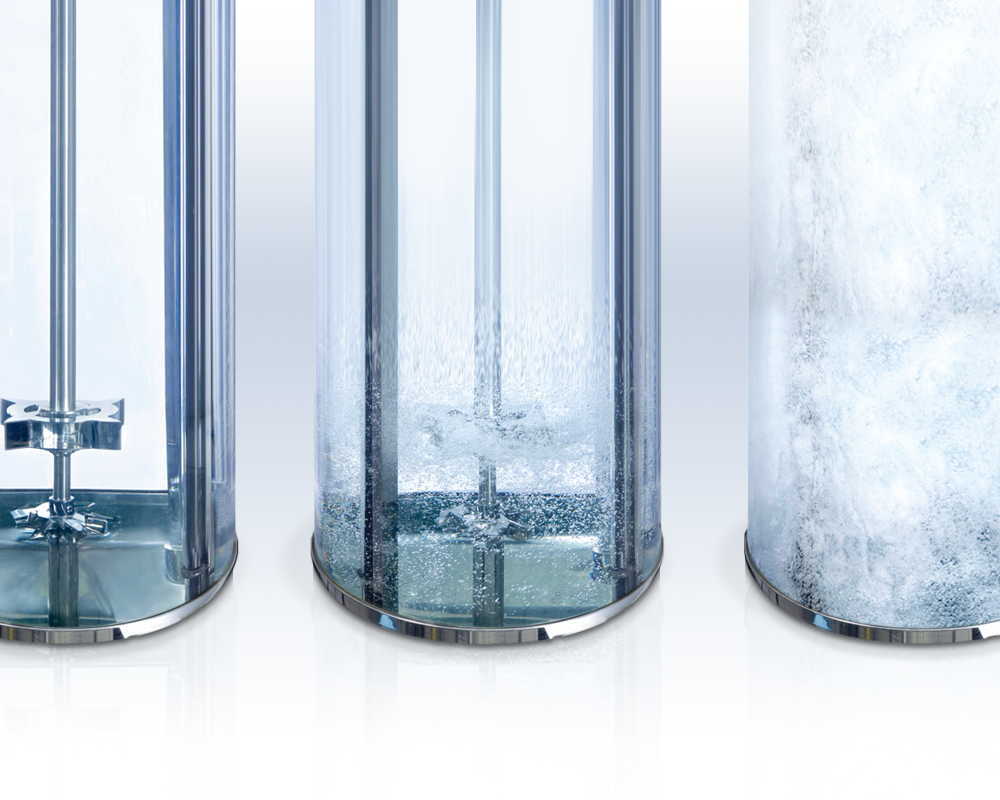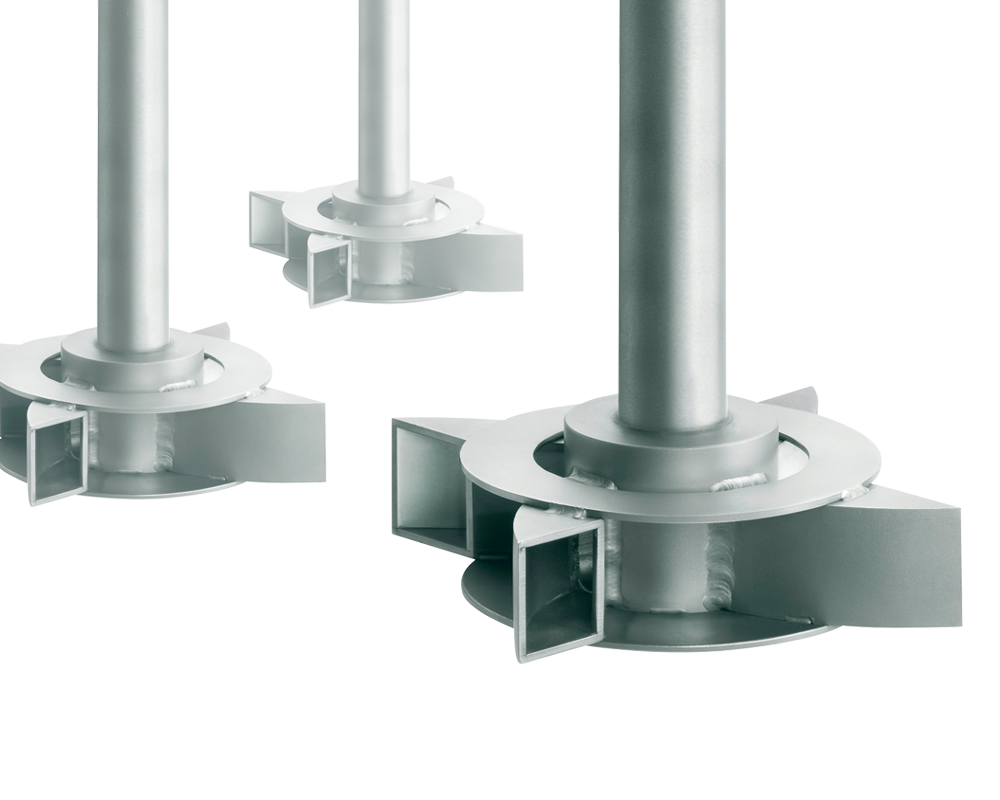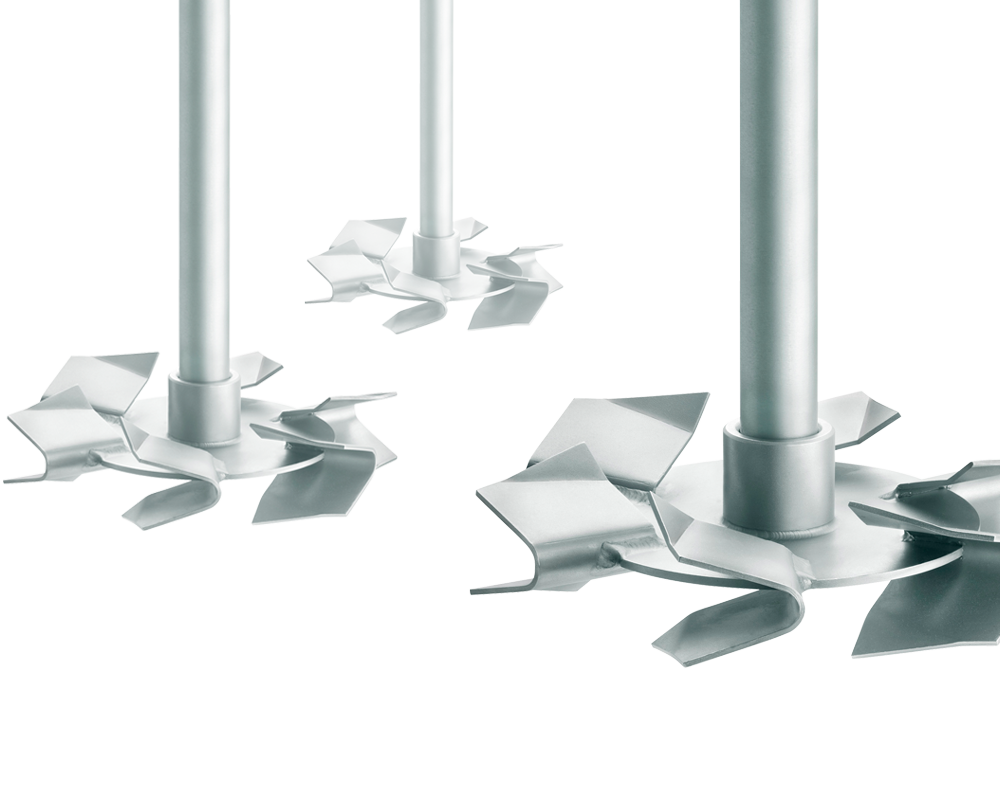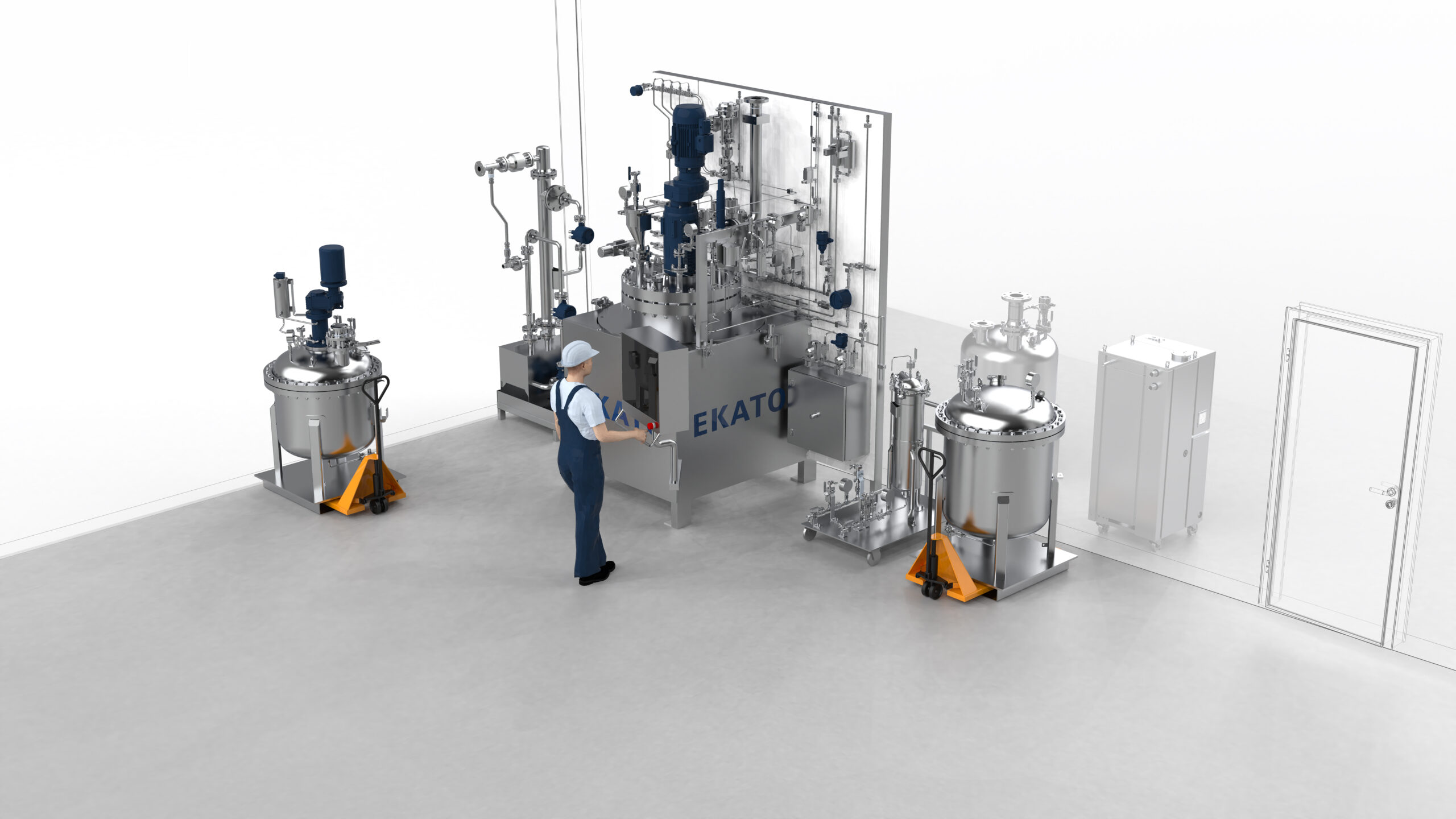
EKATO
Hydrogenation Plants for APIs & Pharma Manufacturing
Hydrogenation Technology in API Production
The pharmaceutical industry demands flexible, cleanable, and modular solutions for production. Hydrogenation is a key step, enabling critical chemical transformations that impact drug quality and safety. With over 90 years of expertise, EKATO delivers custom-engineered hydrogenation plants tailored to pharmaceutical needs. Our solutions combine advanced mixing, precise control, and full GMP compliance—ensuring purity, consistency, and process safety. From lab to commercial scale, EKATO optimizes API manufacturing with scalable, regulatory-compliant hydrogenation technology.
Critical Parameters in API Hydrogenation
Successful API hydrogenation depends on precise control of multiple process parameters that significantly impact reaction outcomes:
- High Pressure: Typically ranging from 2-16 bar, pressure management directly affects reaction kinetics, selectivity, and operational + environmental safety considerations.
- Catalyst Type and Loading: Selection between heterogeneous (Pd/C, Pt/C, Nickel) catalysts based on reaction specificity requirements.
- Temperature Control: Precise temperature management (usually between 20-150°C) influences reaction rates and product selectivity while preventing potential side reactions.
- Mixing Efficiency: Critical for gas-liquid mass transfer, uniform catalyst distribution, and heat transfer.
- Cleanability & GMP Compliance: Process plants that are easy to clean
Free On-Demand Webinar
Are you ready to dive into the technical world of API hydrogenation?
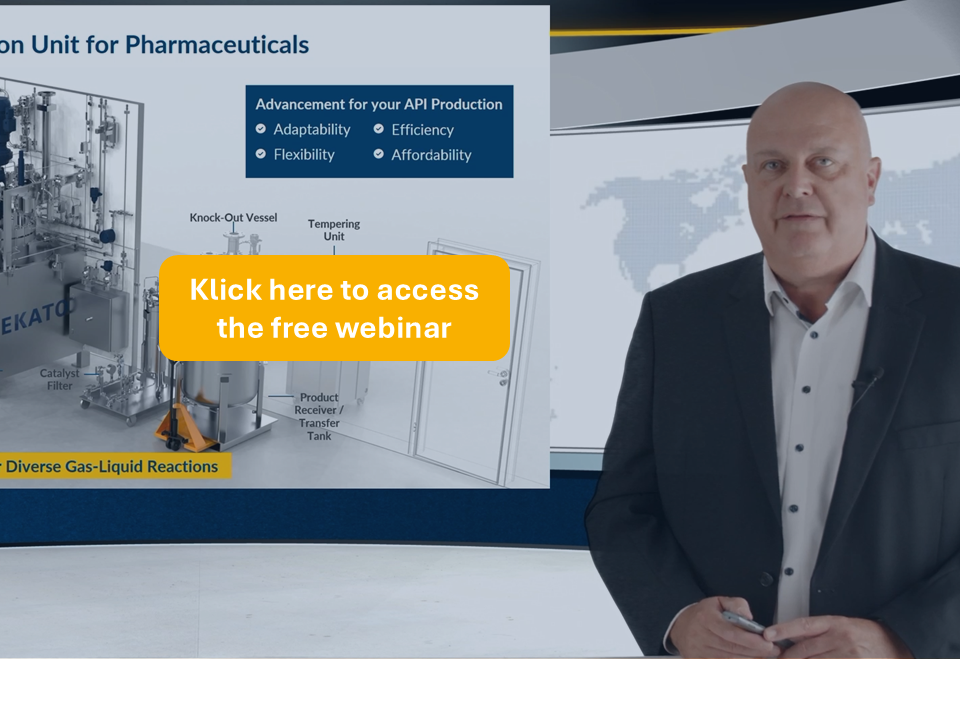
Discover the essentials of agitated hydrogenation processes, explore innovative design concepts for agitated hydrogenation reactors, and learn about cutting-edge modular hydrogenation plant technology – all centered around API production.

Julian Urich
Project Manager Sales
EKATO Rühr- und Mischtechnik GmbH
+49 7622 29 610
julian.urich@ekato.com
Project Manager Sales
EKATO Rühr- und Mischtechnik GmbH
+49 7622 29 610
julian.urich@ekato.com
.
Process Consultation
Contact us today to connect directly with our Sales Project Manager and discover how we can enhance your process, equipment, and overall plant efficiency.
Small-Scale Hydrogenation Unit for Pharmaceuticals
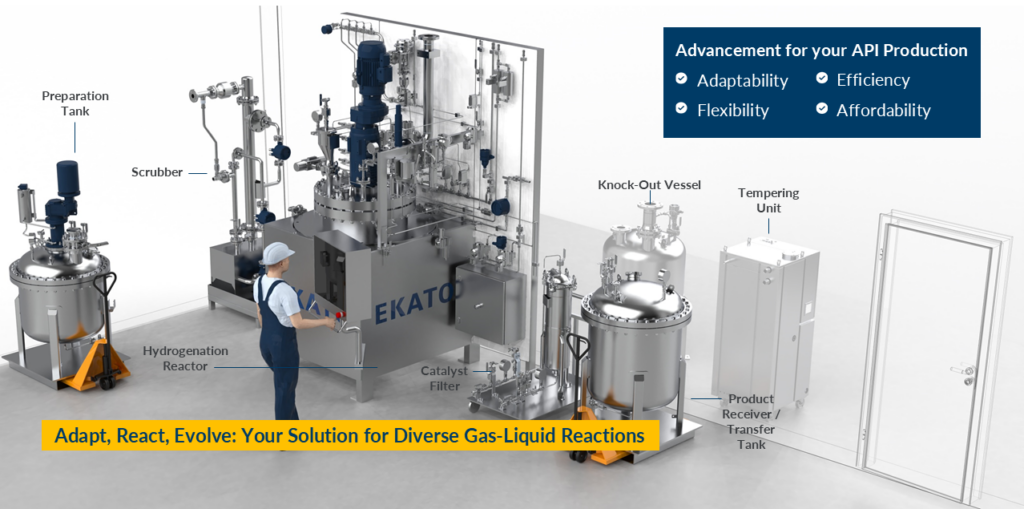
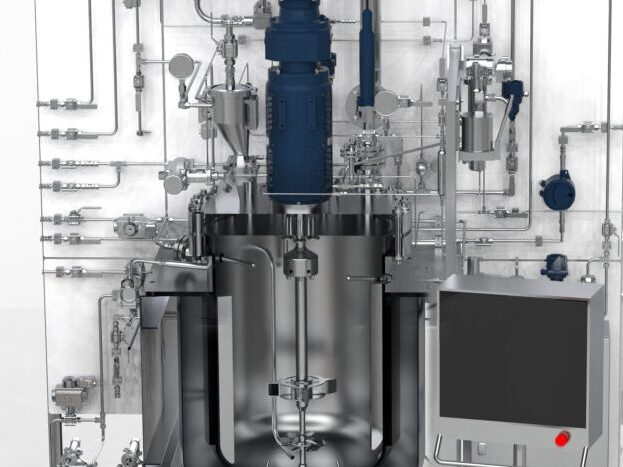
Hydrogenation Reactor
Design Data
Temperature: -25 to 150 °C
Pressure: FV / 16 bar
Filling Volume: 20 to 500 L useful volume
Material Reactor: Stainless Steel, Hastelloy (C22)
Cooling: Double Jacket
Mixer: VISCOPROP or GASJET
Pharma Design: GMP and Good Cleanability
Cleaning: Includes Cleaning-in-Place (CIP)
Qualification: IQ and OQ
Gas-Liquid Reactor with Interchangeable Impeller System
Self-Aspirating turbine for volume gassing:
GASJET
- Self-aspirating impeller
- Draws gas through hollow shaft
- Re-disperses gas
- Gas is finely dispersed into liquid
- Improves mass transfer

PHASEJET
- Eliminates flat blade turbine issues under gas
- Blades shaped to reduce flow separation
- Stable power draw (gassed vs. ungassed)
- Over 2× higher flooding limit
- Boosts overall efficiency
EKATO GASJET Impeller for gas-liquid applications with pure gases -18
Modular Process Components
Preparation Tank
- Moveable via palette trucks
- Agitator for suspending / dissolving Solids
- Available in different volumes / materials
- Optional lock for catalyst loading

Pump Station
Filter
Transfer Tank
Heating / Cooling Unit
Scrubber
Knock Out / Blow Out
Small-Scale Hydrogenation Unit
Transforming Production with Compact Modularity
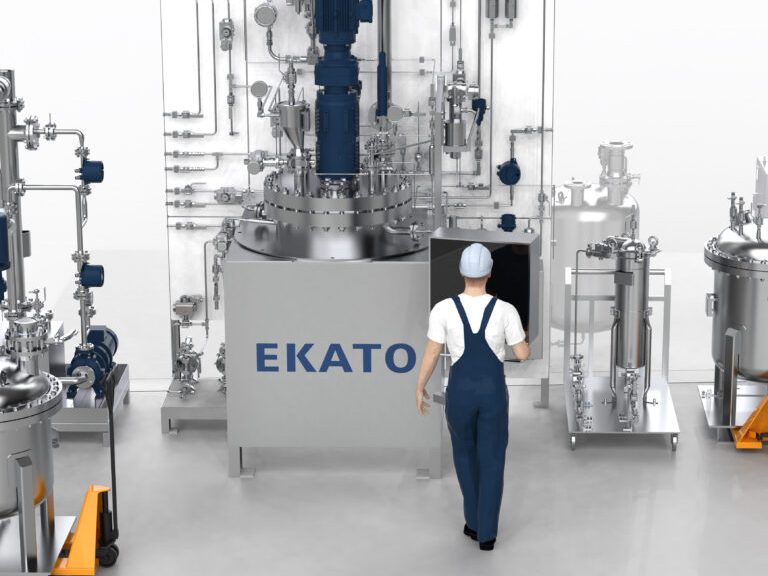
- Advanced, modular hydrogenation plant tailored for pharmaceuticals (e.g. Active Pharmaceutical Ingredients (APIs), Active Diagnostic Ingredients (ADIs), small molecules, Drug Substances
- Hygienic design enables safe cleaning and prevents product cross-contamination and avoids irregular FDA audits
- Modular design allows for customizable configurations, providing tailored solutions for your production
- Designed for small and medium batch sizes
- Exceptional process flexibility and efficient production for various quantities
- Equipped with advanced safety mechanisms and automated controls for precise production processes


